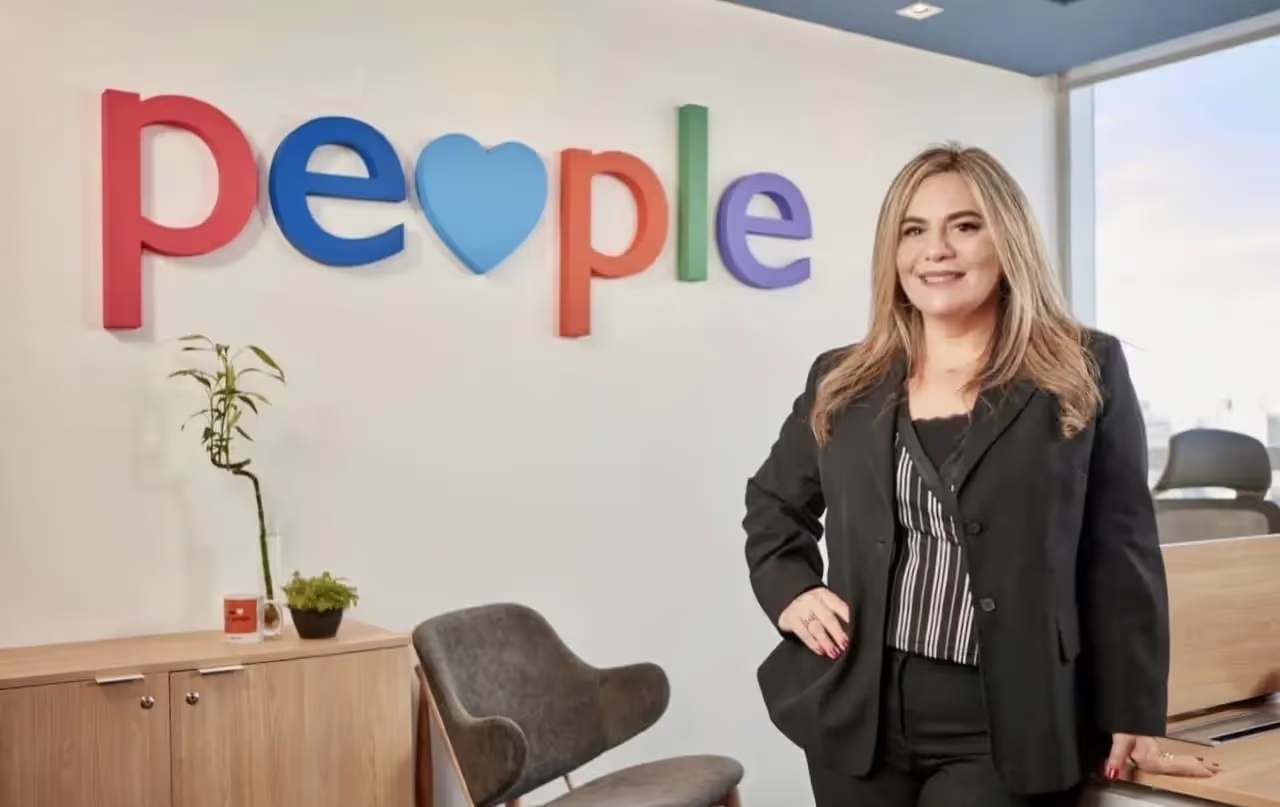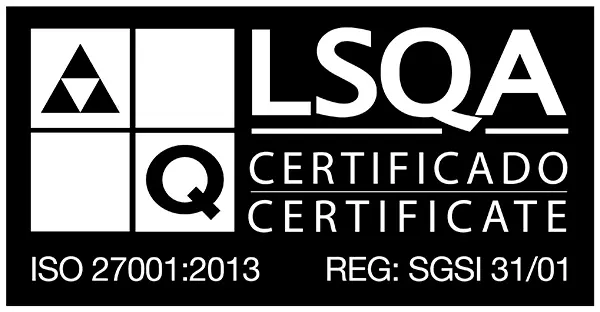With this phrase that Infocorp feels very unique, Elena Rubin, leader of the People area, summarizes the strength of the idea that everyone can do and propose in the company. The entrepreneurial DNA with which Gabriel Colla founded the company 25 years ago is still as valid today as it was on the first day. In fact, innovation is one of the company's core values, along with passion, joy, resilience and empathy.
Tell me about Infocorp's culture and values.
Culture is strongly imprinted with an entrepreneurial spirit. We are constantly changing. Looking for how to overcome ourselves, how to do things that challenge us, how to rethink our methodologies, our ways of organizing ourselves, etc. We have entrepreneurial DNA since our origins and 25 years after Gabriel Colla founded the company, we are still entrepreneurs.
As for values, I would say that the fundamental one is respect for people and their potential. We foster empathy, are resilient, and we fall and rise stronger than ever. We seek to innovate, whether in technology, in products or in the way we face problems. Collaboration is a value that we cultivate. It's no use at Infocorp to be an excellent technician if you're a bad colleague or aren't generous with your knowledge. These types of profiles don't fit our culture. We encourage people to do, to propose ideas, to be proactive. There is a very typical phrase in our culture: it is better to ask for forgiveness than to ask for permission! It's not a culture that penalizes doing, even in error. We try to learn when we make mistakes and move on. Passion for what we do is also another essential aspect of our culture.
How has HR management changed since you studied until now?
We are in a world where the collaborator, employee or whatever we want to call them is at the center of everything. There are very different situations depending on the industry, the sector of activity, the type of work, etc., but I could say that before people spent much longer in a company, looking for security, even if the company didn't give them everything they needed. Today, people seek to be the protagonists, and if a company does not meet their expectations, they do not hesitate to change jobs. They seek to be and be motivated. Previously, job change was seen as synonymous with instability or lack of commitment. The current reality is far from this. Today it is very difficult for a person's working life to be spent entirely in the same company. Something that was synonymous with very precious values today means nothing in and of itself.
What was the biggest lesson a collaborator taught you?
One tends to learn more from pain or mistakes than from successes. I can't mention a single lesson to you, but I'm sure they've given me a lot. Every day I learn from the people I work with. Even though they feel that I may be helping them, to give an example in a coaching process, in reality they are helping me to grow as a professional and as a person.
And the best idea? Any changes you have implemented in the way you work based on suggestions from collaborators?
Every day someone suggests a different way of doing things. It would be unfair if I said there was a better idea. There are hundreds of ideas over time and in different contexts. And most of the time the best initiatives are not the product of an enlightened person, but of a group construction. The process of a team starting from someone's good idea, which takes shape as the pieces of a puzzle do. That's the great thing about teamwork. That makes 1+1 100 or 1000.
Tell me about the People Voices initiative. How do they process the results and how possible is it to implement the initiatives that arise from there?
This is our organizational climate survey. It is a staff satisfaction survey, which measures 10 different dimensions of the organizational climate, using a battery of statements. It is an anonymous, voluntary survey that is applied to all subsidiaries.
We always attend to the results of the survey and do our best to work on the opportunities for improvement that people return to us. Sometimes they are more viable initiatives and sometimes less so. The truth is that the initiatives with the greatest impact in many cases do not simply involve listening, but rather recognizing errors and coordinating wills.
Infocorp has offices in Montevideo but also in Cologne and Chile. What is it like to work remotely? How do you make these people feel as much a part of the company as those who come to headquarters?
Managing remote teams is quite a challenge. In fact, we have faced many difficulties in this regard. Before Covid-19, we decided that team members from different subsidiaries should travel frequently and that the different members of the teams should visit the Headquarters and spend several days interacting with the team they would work with remotely, which was very useful. The theme is to be close, to know the culture, the needs of the team, of the people and to act accordingly. Today the reality changed. We're all part of a large remote team, no matter what city you work in. This circumstance helped us a lot to develop our abilities to manage remote work teams and develop initiatives that support this type of work.
What do you value when you do a job interview? How much is there to be guided by intuition and how much by information?
In an interview, I appreciate that the person shows themselves as they are. That you have a thorough understanding of your strengths and opportunities for improvement. That you can recognize your weaknesses and mention them, knowing that they are your biggest challenge. Intuition, if that's what it's all about, is a very important part. Perhaps it is not intuition, but rather a mixture of knowledge acquired through training (in my case in Psychology), of experience and fundamentally of contact with what the person generates in one. Psychologists tend to say that the professional is their own work tool. I think that's where the key lies.
The curriculum is important, the training, the experience, the references, but they are only part of it. Aspects related to how, that is, the way in which the person manages to put that knowledge and those experiences into practice, are becoming increasingly valuable. The attitude with which you face your tasks, your values and how you relate to others.
A piece of advice you would give to someone who is about to start working in a technology company.
Often, people with an “engineering profile” have more developed analytical and logical reasoning skills and less developed competencies related to soft skills, as they are usually called, (communication, empathy, etc.) My advice would be to seek to develop these skills. That they work on the development of their self-knowledge, on their capacity for communication, empathy, and leadership. These are the skills that you will surely need to a greater extent. Companies today don't need the best technician. They need people with the capacity to integrate teams, collaborate, share, create with others. Without these attitudes, technical knowledge loses much of its value.
What advice would you give to a young person looking for a job?
That you seek to find out what your passion is and go after it. That he knows how to find what he can shine at, what his unique talent is, what he enjoys doing and that he does not give up in the process of seeking and seeking the possibility of dedicating his life to that passion, no matter how difficult he may encounter along the way.
Let's talk a little bit on a personal level. Is it possible to apply HR knowledge in your home, for example, to the upbringing of your children?
Although you are who you go and carry with you the knowledge and experiences you have acquired, in the role of parents everything is different. I remember that my parents had a series of books called “School for Parents”. Without undermining the contributions of theories about how to be the best parents, practice surpasses any theory and that is confirmed to you by anyone who has children. You only learn to be parents if you are. Something similar happens with leadership. You are a leader based on the people you lead and they are the ones who transform you into a leader.




